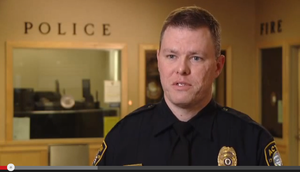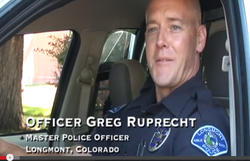RESTORATIVE LAW ENFORCEMENT
C4RJ currently accepts juvenile and adult referrals from the police departments of Acton, Amherst, Arlington, Ayer, Bedford, Belmont, Boxborough, Burlington, Cambridge, Concord, Groton, Hudson, Lexington, Newton, Northampton, South Hadley, Stow, Sudbury, Wayland, and Winthrop, as well as the Northwestern District Attorney and the District Attorneys of Middlesex and Suffolk counties.
Victims and offenders don’t live in isolation or in some confined municipal area. They’re active, connected parts of our communities. They attend school, work, and play in our neighborhoods. When it comes to a crime that disrupts the life of a victim, offender and loved ones, a community is also affected.
At C4RJ, the community is an essential part of the process of accountability and repair.
At C4RJ, we engage communities in several ways:
- When we are invited by a police department to explore a new partnership, we meet with community leaders to seek support for our work and advice about the character and needs of their community.
- We meet with school administrators, civic, and faith-based organizations to introduce our work.
- We seek community representation on our volunteer teams, committees, and board.
- Offenders who are referred to C4RJ often engage in community service.
If you are interested in exploring a partnership with your community, click here.
Police Partnerships
C4RJ partners with regional police departments for referrals. Each police chief understands restorative justice, its aims, and its process. Beyond that, each department sets its own referral criteria. Police officers receive ongoing training, provide meeting space, participate in the “circle” process, and coordinate with C4RJ personnel throughout each case.
Our participating police departments seek out the restorative justice option as a means of:
- empowering victims who seek a voice in the justice process
- providing an intermediate response between letting someone “off the hook” for wrongdoing and launching full criminal prosecution
- retaining police officer involvement in cases to hold offenders meaningfully accountable
- strengthening police relationships within their communities
Police departments don’t lose control of cases after the referral. Here are the levels of police involvement at C4RJ:
- Police officers consult with staff on referrals
- Police officers participate in Opening and Closing circles, which take place at the referring department,
unless the victim prefers another venue - A Police Chief serves on the C4RJ board
- All volunteers are CORI-checked, and volunteer candidates can be vetoed by respective Police Chiefs
- A quarterly Police Council convenes to discuss C4RJ policies and practices
- C4RJ staff periodically report back to Police Chiefs on cases to track trends
- Cases can be sent back to the referring department if the victim is unsatisfied with the process, if the offender is not taking responsibility, or if the safety/well-being of the parties cannot be guaranteed.
 C4RJ Co-Founder, Chief Len Wetherbee, and Acton Detective Keith Campbell are interviewed in this video clip about how restorative justice fits into their police work.
C4RJ Co-Founder, Chief Len Wetherbee, and Acton Detective Keith Campbell are interviewed in this video clip about how restorative justice fits into their police work.
The interviews are part of a longer piece called "Finding Courage: Addressing Harm with Restorative Justice Circles" with other clips also available on YouTube.
In this article and accompanying video clip, a Colorado police officer speaks to how valuable restorative justice is in his work.
C4RJ is always engaging in conversations with new communities and police departments. We currently partner with the following:
Eastern Massachusetts
- Acton Police
- Arlington Police
- Ayer Police
- Bedford Police
- Belmont Police
- Boxborough Police
- Burlington Police
- Cambridge Police
- Concord Police
- Groton Police
- Hudson Police
- Lexington Police
- Middlesex District Attorney's Office
- Newton Police
- Stow Police
- Suffolk County District Attorney's Office
- Sudbury Police
- Wayland Police
- Winthrop Police
Western Massachusetts
- Amherst Police
- Northampton Police
- Northwestern District Attorney's Office
- South Hadley Police
If you would like to learn more about partnering your police department with C4RJ,
contact C4RJ's Executive Director here.









